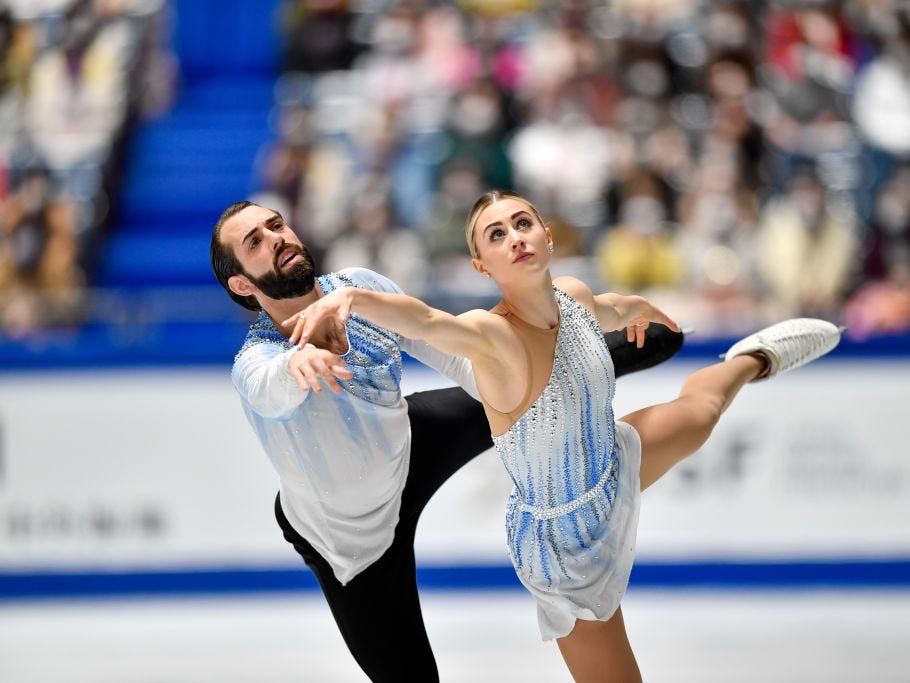
- In the Tokyo Summer Olympics in 2021, videos were posted on TikTok with Olympians' Grindr profiles.
- For the Beijing Winter Games, Grindr disabled the "explore" function for people within the Olympic Village.
- Grindr's "explore" feature typically allows users to surf the profiles of anyone in the world.
Queer dating app Grindr has nixed the "explore" function for users in the Beijing Olympic Village in a bid to help shield athletes from discrimination.
The "explore" service enables users to look at Grindr profiles anywhere in the world. It's similar to Tinder Passport.
The feature was used to reveal athletes' profiles at the Summer Olympics in Tokyo in 2021, per prior Insider reporting.
Bloomberg reported Tuesday that users on TikTok posted at least 4 viral videos with names and pictures of Olympic athletes' Grindr profiles, potentially causing harm for those from countries where being LGBTQ is less accepted — or illegal.
Grindr has also been used to target people before, when a man in Texas pled guilty to federal hate crimes for using the app to assault and rob gay men.
Grindr, known for its usage by gay men, will still be useable for its other functions inside the Olympic Village, finding people nearby and newly added profiles, per the Bloomberg report.
"We want Grindr to be a space where all queer athletes, regardless of where they're from, feel confident connecting with one another while they're in the Olympic Village," Jack Harrison-Quintana, director of Grindr for Equality, told Bloomberg.
Grindr spokesperson Patrick Lenihan said the app's explore feature has been disabled before in countries where being LGBTQ is illegal, but this is the first time it's been done for the Olympics, Bloomberg noted.
A record number of openly LGBTQ athletes are competing at this year's Winter Olympics, with at least 36 competitors, according to a count from Outsports, including Timothy LeDuc from Team USA, who is slated to become the first openly nonbinary Olympian.
At this year's games, roughly 90 nations are represented. Of those, 36 scored below 50% on Equaldex's Equality Index, which creates a numerical score based on LGBTQ protections and societal acceptance in a given country.
"I think Grindr is doing the right thing to protect their privacy," said Stephanie Yingyi Wang, a PhD candidate in the Department of Gender, Women and Sexuality Studies at the University of Washington.
And while the Olympics is an international event, the fact that this is happening within China — which has a complicated history and environment when it comes to LGBTQ rights — inserts a level of interest to the Grindr issue, Wang says. "[People] will see China as an authoritarian country that cracks down," she adds. "That adds the spice to the news."
The Chinese government has, in some ways, already been cracking down. In July, the government shut down LGBTQ online chat groups on WeChat. In November, LGBT Rights Advocacy China, which focused on legal advocacy for LGBTQ rights, shut down, which she heard might have been due to outside pressure, Wang added.
At the same time, social acceptance is improving, Wang believes. "Most of the difficulty… really comes from the family and the kind of pressure to conform in a heteronormative society," she said. "I see a lot of — actually, not improvements, but just more opening, kind of widening discussion on a societal level, which I think is very promising."
In 2020, Grindr said nearly 13 million people use the app each month, with most of its users in the US.